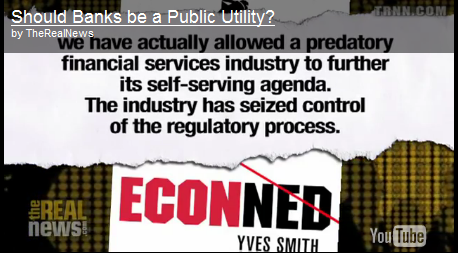
0389
Should Banks Be A Public Utility? – provided by TheRealNews.com; Yves Smith: Finance sector controls the regulatory process – there needs to be a publicly controlled alternative to the private banking system

Should Banks Be A Public Utility? – provided by TheRealNews.com; Yves Smith: Finance sector controls the regulatory process – there needs to be a publicly controlled alternative to the private banking system

Minds for History – A conference in May, 1989, discussing humanity’s future with Nobelists Murray Gell-Mann and Czeslaw Milosz, Richard Falk, Harvey Cox, Hazel Henderson and jazz musician Billy Taylor.

Bart Chilton — provided by theREALnews network; CFTC Commissioner Bart Chilton says: “A Hair Trigger Away from Economic Calamity.” Wall Street lobbyists trying to slow down trading regulations and defund Commission.
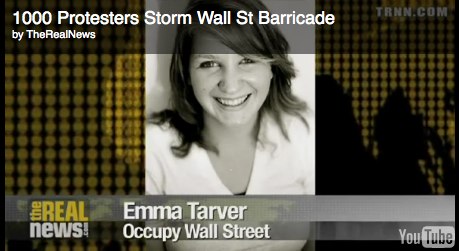
1000 Protesters Storm Wall Street — provided by TheRealNews.com; Occupy Wall Street movement gains support from unions, student groups and community organizers. Watch full multipart TRNN Occupy Wall St. Stories
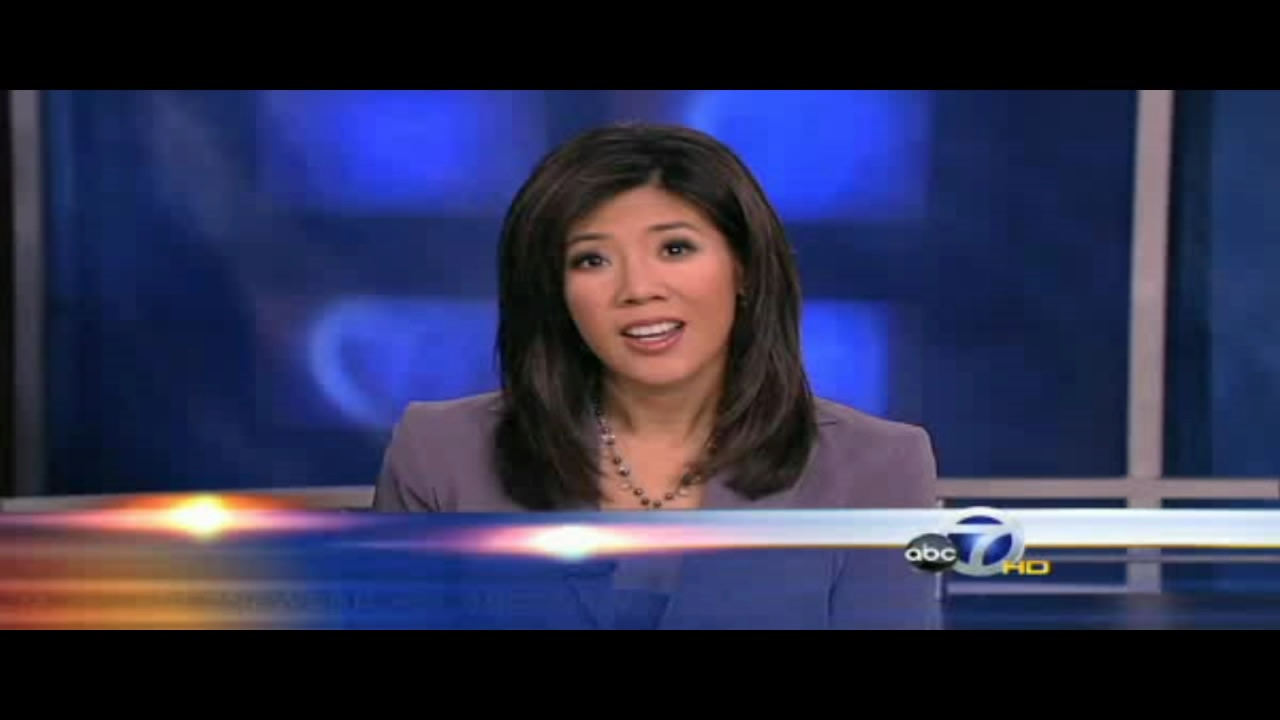
 Insights from the Green – Featuring Simran Sethi, environmental journalist and host of the Ethical Markets TV series, these videos provided by Sundance Channel and TheGreenOnline address ways in which we can be socially and environmentally responsible.
Insights from the Green – Featuring Simran Sethi, environmental journalist and host of the Ethical Markets TV series, these videos provided by Sundance Channel and TheGreenOnline address ways in which we can be socially and environmentally responsible.
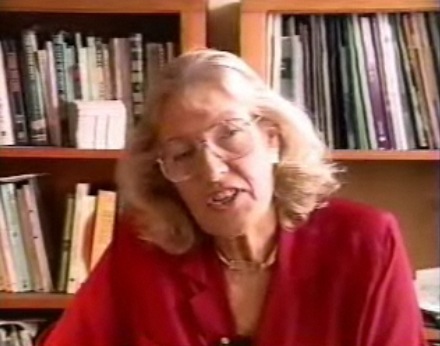 GLOBAL CITIZENS : CREATIVE SOLUTIONS – Socially responsible voices of individuals and NGOs, like the Skoll Foundation, the UN and IONS, sharing their vision for a sustainable future; including perspectives like Vicki Robin’s, Jane Goodall’s and Van Jones’; solutions from young people around the world; stories of people with big ideas set to change the world in major ways, drawn from sources such as TED.com, China’s Green Beat and the Schumacher Society.
GLOBAL CITIZENS : CREATIVE SOLUTIONS – Socially responsible voices of individuals and NGOs, like the Skoll Foundation, the UN and IONS, sharing their vision for a sustainable future; including perspectives like Vicki Robin’s, Jane Goodall’s and Van Jones’; solutions from young people around the world; stories of people with big ideas set to change the world in major ways, drawn from sources such as TED.com, China’s Green Beat and the Schumacher Society.
 Comedy – Shows and videos which allow us to laugh as we learn
Comedy – Shows and videos which allow us to laugh as we learn
 GREEN ENERGY AND DESIGN – Shows and videos featuring renewable energy and other clean technologies.
GREEN ENERGY AND DESIGN – Shows and videos featuring renewable energy and other clean technologies.
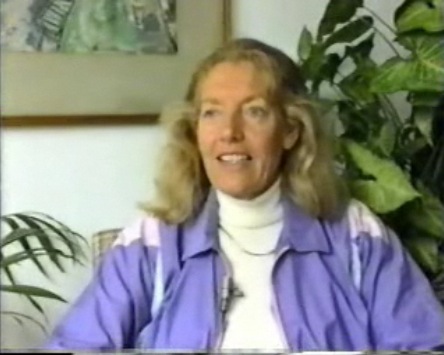 Classic Talk – Commentaries and dialogues, many with Hazel Henderson, which stand the test of time, including a rare interview with Aurelio Peccei, late founder of the Club of Rome; also Barbara Marx Hubbard, Fritjof Capra, Frank Bracho, James Robertson, Frederick Hayek and others.
Classic Talk – Commentaries and dialogues, many with Hazel Henderson, which stand the test of time, including a rare interview with Aurelio Peccei, late founder of the Club of Rome; also Barbara Marx Hubbard, Fritjof Capra, Frank Bracho, James Robertson, Frederick Hayek and others.

 Provided by www.GeniusLoci.com Ecological Design – Beginning in the 1920’s with the work of R. Buckminster Fuller, moving through the 1960’s and the Counter Culture and ending on the doorstep of the 21st century: the film follows the evolution of ecological design from the vision of a few independent thinkers to the powerful movement it is becoming.(~ 64 minutes)
Provided by www.GeniusLoci.com Ecological Design – Beginning in the 1920’s with the work of R. Buckminster Fuller, moving through the 1960’s and the Counter Culture and ending on the doorstep of the 21st century: the film follows the evolution of ecological design from the vision of a few independent thinkers to the powerful movement it is becoming.(~ 64 minutes)

Strategies for Sustainable Economies – Hazel
Henderson in conversation with James Robertson, British author of
Power, Money and Sex and The Future of Work, about globalization,
out-sourcing, automation and new forms of development.
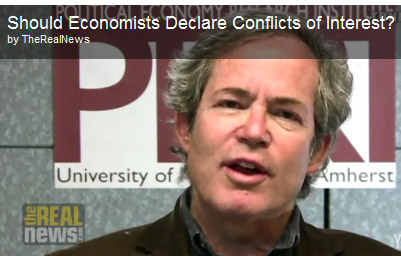
Should Economists Declare Conflicts of Interest? Provided by TheRealNews.com — Gerald Epstein: Study shows many economists who testify or write on finance do not reveal they work for financial institutions.
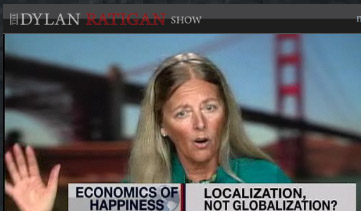
The Economics of Happiness — provided by The Dylan Ratigan Show; Helena Norberg-Hodge of the International Society for Ecology & Culture (ISEC) promotes her film which offers simple policy steps to reduce unemployment and pollution if we can get beyond the economic myths which have us rushing in the wrong direction.

Redefining Cultural Values – Hazel
Henderson and Frank Bracho, former Venezuelan Ambassador to India,
author of Globalization and Petroleum: Salvation or Perdition, discuss
the importance of culture in development.

Ecoliteracy and System Thinking – Hazel Henderson and Fritjof Capra, author of The Web of Life, examine the educational movement to teach “ecoliteracy,” an understanding of ecosystems as humanity’s life-support system, and how this leads to systems thinking.

Empowering Women’s Visions – Hazel Henderson and Barbara Marx Hubbard, author of The Hunger of Eve, discuss women as visionary leaders and why they are important for our changing world.

Seven Steps to a New Millennium – Hazel Henderson and Barbara Marx Hubbard, author of Human Social Potential, discuss possibilities for humans as we extend our space program.
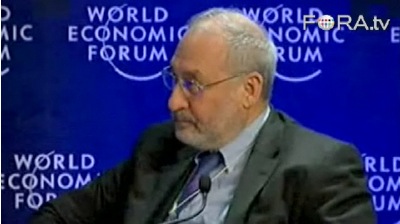 Reforming Global Finance –Videos showing solutions to the global economic crisis that break from the old paradigms and offer a different relationship to money, banking, debt, currency and our measure of wealth.
Reforming Global Finance –Videos showing solutions to the global economic crisis that break from the old paradigms and offer a different relationship to money, banking, debt, currency and our measure of wealth.
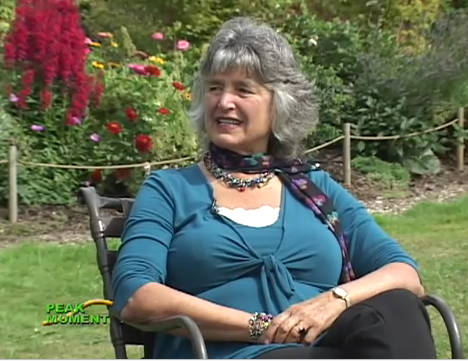
Conversation with Vicki Robin — provided by Peak Moment; Published 20 years ago, Your Money or Your Life was written for these times, asserts co-author Vicki Robin. People examine their assumptions about money, decide what is “Enough,” get out of debt, and free up life energy to invest in what matters most to them. Vicki discusses applying these same tools to relationships with our time, opportunities for creativity and exchange, building community, and her ten-mile food diet.

Ben Bingham, 3 Sisters Sustainable Management, LLC
Downsizing and reforming global capital markets with pioneer asset manager Benjamin Bingham on financial transactions tax to curb excessive speculation and high-frequency trading, closing tax havens, raising capital reserves, breaking up too-big-to-fail banks and more. “Transforming Finance 2.0” – an Ethical Markets Media, LLC, production © 2012

Katherine Collins, Honeybee Capital
Holding stock-markets to higher ethical standards, regulation and oversight for accountability. Why successful asset manager Katherine Collins sought a more ethically satisfying life beyond Wall Street after her degree at Harvard Divinity School. “Transforming Finance 2.0” – an Ethical Markets Media, LLC, production © 2012

Susan Davis, Capital Missions Company
Legendary banker Susan Davis describes her winning philosophy, KINS, based on strategies of generosity, win-win deals, connecting investors around conscious capitalism and growing fairer, greener economies worldwide as described in her autobiography, The Trojan Horse of Love. “Transforming Finance 2.0” – an Ethical Markets Media, LLC, production © 2012

Amy Domini, Domini Social Investments
Industry icon Amy Domini, author of the landmark book Socially Responsible Investing, Making a Difference and Making Money. Amy created the Domini Social 400 Index which regularly outperforms conventional benchmarks and founded Domini Social Investments. “Transforming Finance 2.0” – an Ethical Markets Media, LLC, production © 2012

Alisa Gravitz, President, Green America
Alisa Gravitz took her Harvard MBA into uncharted waters in co-founding Green America and the National Green Pages. Her latest innovation is CREW, a business-to-business barter site. “Transforming Finance 2.0” – an Ethical Markets Media, LLC, production © 2012
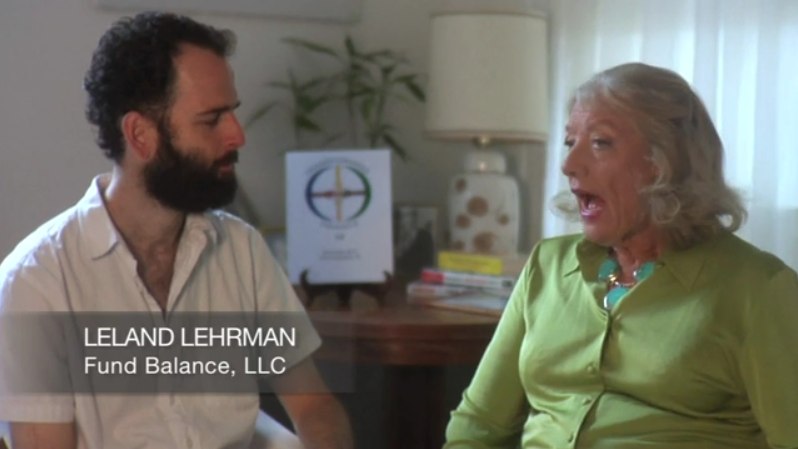
Leland Lehrman, Fund Balance, LLC
Leland Lerhman, principal, Fund Balance, is an investor with deep ecological understanding and visionary proposals for correcting the failing financial models. These derived from obsolete economics now harming both humans and our planet. Leland and Hazel are both advisors to the Public Banking Institute founded by lawyer Ellen Brown, author of The Web of Debt. “Transforming Finance 2.0” – an Ethical Markets Media, LLC, production © 2012

Christopher Lindstrom, Slow Money
Christopher Lindstrom and Hazel discuss their longtime, often shared efforts to reform the money-creation process. They both promote the many local, complementary currencies now in circulation in hundreds of cities around the world. Chris was a key actor in launching “Berkshares,” the successful currency of the Schumacher Society developed by Susan Witt in Great Barrington, Massachusetts. “Transforming Finance 2.0” – an Ethical Markets Media, LLC, production © 2012

Terry Mollner, Trusteeship Institute, Inc.
Terry Mollner, a leader in co-founding the Calvert Group of socially responsible mutual funds also spent time in India following the exemplary life of Mahatma Gandhi. He also serves on the board of Ben and Jerry’s Ice Cream, now owned by Unilever. Terry got this giant multinational to sign a path breaking agreement to preserve Ben and Jerry’s social mission. Terry and Hazel agree that the next stage of finance is full recognition of the primacy of the global commons and hence placing the common good above all else if we are to preserve our common future. “Transforming Finance 2.0” – an Ethical Markets Media, LLC, production © 2012
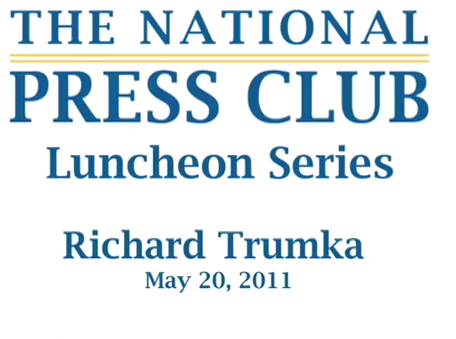
Richard Trumka on worker and voter rights — provided by The Natonal Press Club; Richard Trumka, president of the AFL-CIO, addressed the National Press Club on May 20, 2011, on recent efforts to curb collective bargaining rights in several states, including Wisconsin and Ohio, the political outlook for the 2012 elections, and the impact of austerity budgets on local, state and federal workers. Presentation begins around 6 min mark.
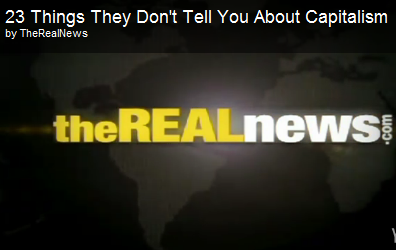
23 Things They Don’t Tell You About Capitalism — provided by TheRealNews.com; The front cover ofNewsweek said we’re all socialists now. So what about the future of the capitalist system? Are we facing another major depression? Are we facing a global meltdown? And is there a more rational way to have a capitalist system? TRNN talks about all of this with Ha-Joon Chang. He’s the author of the book 23 Things They Don’t Tell You About Capitalism and on the Faculty of Economics of Cambridge University. See the entire series on all 23 points on TRNN.
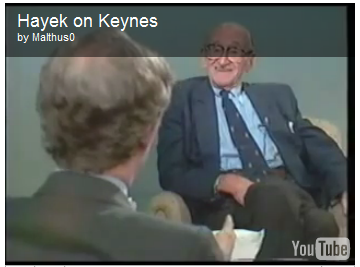
Frederick Hayek speaks — provided by RealEconTV.com; What if the fundamental theory that guides government
action on the economy were fatally flawed? Frederich Hayek recounts his last conversation with
John Maynard Keynes. Hayek asked Keynes whether he wasn’t alarmed that the real problem was inflation. Keynes completely agreed, assuring Hayek that Hayek’s theory was “frightfully important in combatting deflation.” Keynes added that “if inflation ever becomes a danger, I’m going to turn public opinion around like this.” Six weeks later Keynes was dead and couldn’t do it.
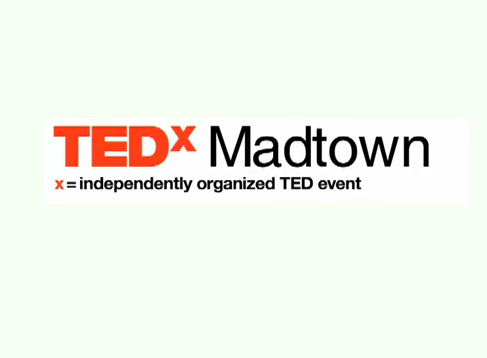
Traci Fenton of WorldBlu — provided by TED.com; In the talk “Democratic Workplaces,” Traci shares the story of why she founded WorldBlu in 1997, what organizational democracy and freedom in the workplace means, and the “power question” every organization must ask if it is going to survive in this new, Democratic Age.